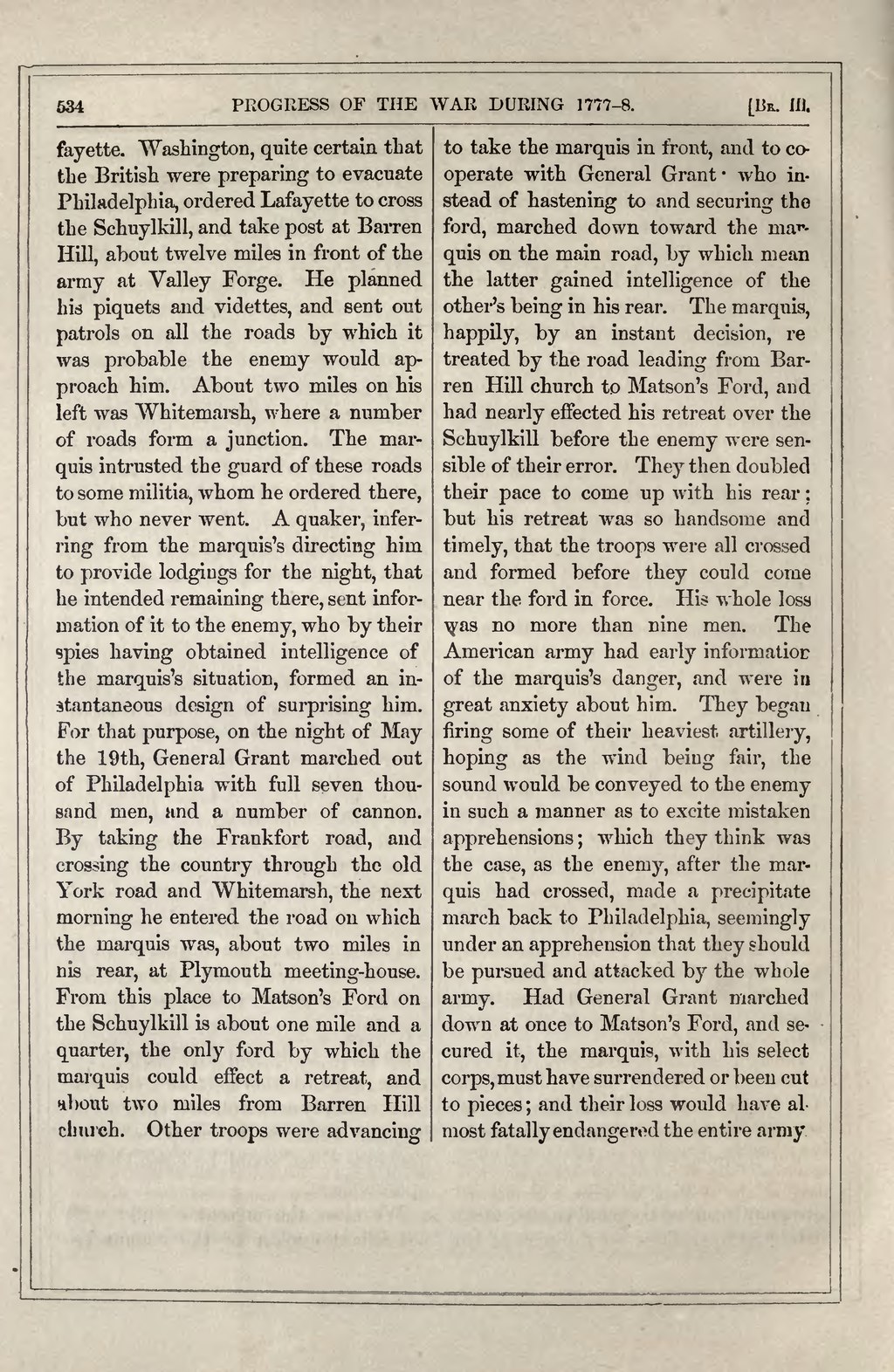fayette. Washington, quite certain that the British were preparing to evacuate Philadelphia, ordered Lafayette to cross the Schuylkill, and take post at Barren Hill, about twelve miles in front of the army at Valley Forge. He planned his piquets and videttes, and sent out patrols on all the roads by which it was probable the enemy would approach him. About two miles on his left was Whitemarsh, where a number of roads form a junction. The marquis intrusted the guard of these roads to some militia, whom he ordered there, but who never went. A quaker, inferring from the marquis's directing him to provide lodgings for the night, that he intended remaining there, sent information of it to the enemy, who by their spies having obtained intelligence of the marquis's situation, formed an instantaneous design of surprising him. For that purpose, on the night of May the 19th, General Grant marched out of Philadelphia with full seven thousand men, and a number of cannon. By taking the Frankfort road, and crossing the country through the old York road and Whitemarsh, the next morning he entered the road on which the marquis was, about two miles in his rear, at Plymouth meeting-house. From this place to Matson's Ford on the Schuylkill is about one mile and a quarter, the only ford by which the marquis could effect a retreat, and about two miles from Barren Hill church. Other troops were advancing to take the marquis in front, and to co-operate with General Grant who instead of hastening to and securing the ford, marched down toward the marquis on the main road, by which mean the latter gained intelligence of the other's being in his rear. The marquis, happily, by an instant decision, retreated by the road leading from Barren Hill church to Matson's Ford, and had nearly effected his retreat over the Schuylkill before the enemy were sensible of their error. They then doubled their pace to come up with his rear; but his retreat was so handsome and timely, that the troops were all crossed and formed before they could come near the ford in force. His whole loss was no more than nine men. The American army had early information of the marquis's danger, and were in great anxiety about him. They began firing some of their heaviest artillery, hoping as the wind being fair, the sound would be conveyed to the enemy in such a manner as to excite mistaken apprehensions; which they think was the case, as the enemy, after the marquis had crossed, made a precipitate march back to Philadelphia, seemingly under an apprehension that they should be pursued and attacked by the whole army. Had General Grant marched down at once to Matson's Ford, and secured it, the marquis, with his select corps, must have surrendered or been cut to pieces ; and their loss would have almost fatally endangered the entire army.
